Today (November 2) is both my birthday and time to get ready for next week's Children's Book Week (November 4-10). I'm surprised to find I've never posted about Children's Book Week before. Here are a few facts about its own birth.
The idea that children were banned from public libraries positively is astounding! Today's author,
Louisa May Alcott, was a popular author long before Children's Book Week and children finally were allowed in libraries. She was both an activist for abolition, feminism, temperance, and women's suffrage, writing for both adults and children. It's strange today to learn according to that Wikipedia article:
Alcott had little interest in writing for children, but saw it as a good financial opportunity. She felt that writing children's literature was tedious.
Alcott biographer Ruth K. MacDonald suggests that Alcott's hesitance to
write children's novels may have arisen from the societal perception
that writing for children was a means by which poor women made money.
She's best known today for her three book series that began with Little Women, but she was very much an aunt to her niece, Lulu, producing Aunt Jo's Scrap-Bag (1872–1882). (66 short stories in six volumes)and later Lulu's Library (1886–1889).
Today's story came from my search for stories about birthdays. This unusual birthday present is from volume 4, My Girls, in the Aunt Jo's Scrap-Bag series. While it shows yet another cause Alcott supported, humane treatment of animals, it is presented in a way children would view it.
When storytelling a literary tale, unless it is extremely short, memorization is not recommended for most storytellers. Instead I would tell its source so that listeners may go back to it. In this story, I would write out the "eppytap" or "eppytarf", as the children in the story call it, and let the audience read it while I read it aloud. It provides an excellent end to the boy's birthday present.
OLD MAJOR.
"O, mamma, don't let them kill him! He isn't
doing any harm, and he's old and weak, and
hasn't any one to be good to him but Posy and
me!" cried little Ned, bursting into his mother's
room, red and breathless with anxiety and haste.
"Kill whom, dear? Sit down and tell me all
about it."
"I can't sit down, and I must be quick, for they
may do it while I'm gone. I left Posy to watch
him, and she is going to scream with all her might
the minute she sees them coming back!" cried
Ned, hovering restlessly about the doorway, as if
expecting the call that was to summon him to the
rescue.
"Mercy on us! what is it, child?"
"A dear old horse, mamma, who has been hobbling
round the road for a week. I've seen him
driven away from all the neighbors, so Posy and I
give him clover and pat him; and to-day we found
him at our bars, looking over at us playing in the
field. I wanted him to come in, but Mr. White
came along and drove him off, and said he was to be
killed because he had no master, and was a
nuisance. Don't let him do it!"
"But, Neddy, I cannot take him in, as I did the
lame chicken, and the cat without a tail. He is too
big, and eats too much, and we have no barn.
Mr. White can find his master, perhaps, or use him for
light work."
Mamma got no further, for Ned said again,—
"No, he can't. He says the poor old thing is of
no use but to boil up. And his master won't be
found, because he has gone away, and left Major to
take care of himself. Mr. White knew the man,
and says he had Major more than eighteen years,
and he was a good horse, and now he's left to die
all alone. Wouldn't I like to pound that man?"
"It was cruel, Neddy, and we must see what we
can do."
So mamma put down her work and followed her
boy, who raced before her to tell Posy it would be
"all right" now.
Mrs. West found her small daughter perched on
a stone wall, patting the head of an old white horse,
who looked more like a skeleton than a living
animal. Ned gave a whoop as he came, and the poor
beast hastily hobbled across the road, pressing
himself into a nook full of blackberry vines and thorny
barberry bushes, as if trying to get out of sight
and escape tormentors.
"That's the way he does when any one comes,
because the boys plague him, and people drive him
about till he doesn't know what to do. Isn't it a pity
to see him so, mamma?" said tender-hearted Ned,
as he pulled a big handful of clover from his father's
field close by.
Indeed, it was sad, for the poor thing had evidently
been a fine horse once; one could see that by
his intelligent eye, the way he pricked up his ears,
and the sorrowful sort of dignity with which he
looked about him, as if asking a little compassion in
memory of his long faithfulness.
"See his poor legs all swelled up, and the bones
in his back, and the burrs the bad boys put in his
mane, and the dusty grass he has to eat. Look! he
knows me, and isn't afraid, because I'm good to
him," said Ned, patting old Major, who gratefully
ate fresh clover from the friendly little hand.
"Yes, and he lets me stroke his nose, mamma.
It's as soft as velvet, and his big eyes don't frighten
me a bit, they are so gentle. Oh, if we could only
put him in our field, and keep him till he dies,
I should be so happy!" said Posy, with such a
wheedlesome arm about mamma's neck, that it was
very hard to deny her any thing.
"If you will let me have Major, I won't ask for
any other birthday present," cried Ned, with a
sudden burst of generosity, inspired, perhaps, by the
confiding way in which the poor beast rubbed his
gray head against the boy's shoulder.
"Why, Neddy, do you really mean that? I was
going to give you something you want very much.
Shall I take you at your word, and give you a
worn-out old horse instead?" asked mamma,
surprised, yet pleased at the offer.
Ned looked at her, then at old Major, and
wavered; for he guessed that the other gift was the
little wheelbarrow he had begged for so long,—the
dear green one, with the delicious creak and rumble
to it. He had seen it at the store, and tried it, and
longed for it, and planned to trundle every thing in
it, from Posy to a load of hay. Yes, it must be
his, and Major must be left to his fate.
Just as he decided this, however, Posy gave a cry
that told him Mr. White was coming. Major
pressed further into the prickly hedge, with a
patient sort of sigh, and a look that went to Ned's
heart, for it seemed to say,—
"Good by, little friend. Don't give up any thing
for me. I'm not worth it, for I can only love you in
return."
Mr. White was very near, but Major was safe; for,
with a sudden red in his freckled cheeks, Ned put
his arm on the poor beast's drooping neck, and said,
manfully,—
"I choose him, mamma; and now he's mine, I'd
like to see anybody touch him!"
It was a pretty sight,—the generous little lad
befriending the old horse, and loving him for pure
pity's sake, in the sweet childish way we so soon
forget.
Posy clapped her hands, mamma smiled, with a
bright look at her boy, while Mr. White threw over
his arm the halter, with which he was about to lead
Major to his doom, and hastened to say,—
"I don't want to hurt the poor critter, ma'am, but
he's no mortal use, and folks complain of his being
in the way; so I thought the kindest thing was to
put him out of his misery."
"Does he suffer, do you think? for if so, it would
be no kindness to keep him alive," said mamma.
"Well, no, I don't suppose he suffers except for
food and a little care; but if he can't have 'em, it
will go hard with him," answered Mr. White,
wondering if the old fellow had any work in him still.
"He never should have been left in this forlorn
way. Those who had had his youth and strength
should have cared for him in his age;" and
Mrs. West looked indignant.
"So they should, ma'am; but Miller was a mean
man, and when he moved, he just left the old horse
to live or die, though he told me, himself, that
Major had served him well, for nigh on to twenty
years. What do you calculate to do about it,
ma'am?" asked Mr. White, in a hurry to be off.
"I'll show you, sir. Ned, let down the bars, and
lead old Major in. That shall be his home while he
lives, for so faithful a servant has earned his rest,
and he shall have it."
Something in the ring of mamma's voice and the
gesture of her hand made Ned's eyes kindle, and
Mr. White walk away, saying, affably,—
"All right, ma'am; I haven't a word to say
against it."
But somehow Mr. White's big barn did not look
as handsome to him as usual when he remembered
that his neighbor, who had no barn at all, had taken
in the friendless horse.
It was difficult to make Major enter the field; for
he had been turned out of so many, driven away
from so many lawns, and even begrudged the scanty
pickings of the roadside, that he could not
understand the invitation given him to enter and take
possession of a great, green field, with apple trees
for shade, and a brook babbling through the middle
of it.
When at last he ventured over the bars, it was
both sad and funny to see how hard he tried to
enjoy himself and express his delight.
First, he sniffed the air, then he nibbled the sweet
grass, took a long look about him, and astonished
the children by lying down with a groan, and trying
to roll. He could not do it, however, so lay still
with his head stretched out, gently flapping his tail
as if to say,—
"It's all right, my dears. I'm not very strong,
and joy upsets me; but I'm quite comfortable, bless
you!"
"Isn't it nice to see him, all safe and happy,
mamma?" sighed Posy, folding her hands in childish
satisfaction, while Ned sat down beside his
horse, and began to take the burrs out of his mane.
"Very nice, only don't kill him with kindness,
and be careful not to get hurt," answered mamma,
as she went back to her work, feeling as if she had
bought an elephant, and didn't know what to do
with him.
Later in the day a sudden shower came up, and
mamma looked about to be sure her little people
were under cover, for they played out all day long,
if possible. No chickens could the maternal hen
find to gather under her wings, and so went clucking
anxiously about till Sally, the cook, said, with a
laugh,—
"Ned's down in the pastur', mum, holding an
umberella over that old horse, and he's got a
waterproof on him, too. Calvin see it, and 'most died
a-laughing."
Mamma laughed too, but asked if Ned had on his
rubber boots and coat.
"Yes, mum, I see him start all in his wet-weather
rig, but I never mistrusted what the dear was up
to till Calvin told me. Posy wanted to go, but I
wouldn't let her, so she went to the upper window,
where she can see the critter under his
umberella."
Mamma went up to find her little girl surveying
the droll prospect with solemn satisfaction; for there
in the field, under the apple tree, stood Major,
blanketed with the old waterproof, while his new
master held an umbrella over his aged head with a
patient devotion that would have endeared him to
the heart of good Mr. Bergh.
Fortunately the shower was soon over, and Ned
came in to dry himself, quite unconscious of any
thing funny in his proceedings. Mamma kept
perfectly sober while she proposed to build a rough
shed for Major out of some boards on the place.
Ned was full of interest at once; and with some
help from Calvin, the corner under the apple tree
was so sheltered that there would be no need of the
umbrella hereafter.
So Major lived in clover, and was a happy horse;
for Cockletop, the lame chicken, and Bobtail, the
cat, welcomed him to their refuge, and soon became
fast friends. Cockle chased grasshoppers or pecked
about him with meditative clucks as he fed; while
Bob rubbed against his legs, slept in his shed, and
nibbled catnip socially as often as his constitution
needed it.
But Major loved the children best, and they took
good care of him, though some of their kind attentions
might have proved fatal if the wise old beast
had not been more prudent than they. It was
pleasant to see him watch for them, with ears
cocked at the first sound of the little voices, his
dim eyes brightening at sight of the round faces
peeping over the wall, and feeble limbs stirred into
sudden activity by the beckoning of a childish hand.
The neighbors laughed at Ned, yet liked him all
the better for the lesson in kindness he had taught
them; and a time came when even Mr. White
showed his respect for old Major.
All that summer Neddy's horse took his rest in
the green meadow, but it was evident that he was
failing fast, and that his "good time" came too late.
Mamma prepared the children for the end as well as
she could, and would have spared them the sorrow
of parting by having Major killed quietly, if Ned
had not begged so hard to let his horse die
naturally; for age was the only disease, and Major
seemed to suffer little pain, though he daily grew
more weak, and lame, and blind.
One morning when the children went to carry
him a soft, warm mash for breakfast, they found
him dead; not in the shed, where they had left him
warmly covered, but at the low place in the wall
where they always got over to visit him.
There he lay, with head outstretched, as if his last
desire had been to get as near them as possible, his
last breath spent in thanking them. They liked to
think that he crept there to say good by, and took
great comfort in the memory of all they had done
for him.
They cried over him tenderly, even while they
agreed that it was better for him to die; and then
they covered him with green boughs, after Ned
had smoothed his coat for the last time, and Posy
cut a lock from his mane to make mourning rings of.
Calvin said he would attend to the funeral, and
went off to dig the grave in a lonely place behind
the sand-bank. Ned declared that he could not
have his horse dragged away and tumbled into a
hole, but must see him buried in a proper manner;
and mamma, with the utmost kindness, said she
would provide all that was needed.
The hour was set at four in the afternoon, and the
two little mourners, provided with large handkerchiefs,
Ned, with a black bow on his arm, and Posy
in a crape veil, went to drop a last tear over their
departed friend.
At the appointed time Calvin appeared, followed
by Mr. White, with a drag drawn by black Bill.
This delicate attention touched Neddy; for it might
have been bay Kitty, and that would have marred
the solemnity of the scene.
As the funeral train passed the house on its way
down the lane, mamma, with another crape veil on,
came out and joined the procession, so full of
sympathy that the children felt deeply grateful.
The October woods were gay with red and yellow
leaves, that rustled softly as they went through
the wood; and when they came to the grave, Ned
thanked Calvin for choosing such a pretty place. A
pine sighed overhead, late asters waved beside it,
and poor Major's last bed was made soft with
hemlock boughs.
When he was laid in it, mamma bade them leave
the old waterproof that had served for a pall still
about him, and then they showered in bright leaves
till nothing was visible but a glimpse of the dear
white tail.
The earth was thrown in, green sods heaped over
it, and then the men departed, feeling that the
mourners would like to linger a little while.
As he left, Mr. White said, with the same gravity
which he had preserved all through the scene,—
"You are welcome to the use of the team and my
time, ma'am. I don't wish any pay for 'em; in fact,
I should feel more comfortable to do this job for old
Major quite free and hearty."
Mamma thanked him, and when he was gone,
Ned proposed that they should sing a hymn, and
Posy added, "They always sing, 'Sister, thou art
mild and lovely' at funerals, you know."
Mamma with difficulty kept sober at this idea
but suggested the song about "Good old Charlie,"
as more appropriate. So it was sung with great
feeling, and then Posy said, as she "wiped her
weeping eyes,"—
"Now, Ned, show mamma our eppytap."
"She means eppytarf," explained Ned, with a
superior air, as he produced a board, on which he
had printed with India ink the following words,—
"Here lies dear old Major. He was a good horse when he
was young. But people were not kind to him when he was
old. We made him as happy as we could. He loved us, and
we mourn for him. Amen."
Ned's knowledge of epitaphs was very slight,
so he asked mamma if this one would do; and she
answered warmly,—
"It is a very good one; for it has what many lack,—the
merit of being true. Put it up, dear, and I'll
make a wreath to hang on the gravestone."
Much gratified, Ned planted the board at the
head of the grave, Posy gathered the brightest
leaves, and mamma made a lovely garland in which
to frame the "eppytap."
Then they left old Major to his rest, feeling sure
that somewhere there must be a lower heaven for
the souls of brave and faithful animals when their
unrewarded work is done.
Many children went to see that lonely grave, but
not one of them disturbed a leaf, or laughed at the
little epitaph that preached them a sermon from the
text,—
"Blessed are the merciful."
*****
Over the years I have adopted many animals, dogs, cats (now off limits due to allergies), goats, and chickens. I'm told C.S. Lewis said they must be waiting for us in heaven because without them heaven wouldn't be heavenly. I've not been able to find that quote and would appreciate it if anybody could help me find it. I certainly agree.
*********
This is part of a
series of postings of stories under the category, “Keeping the
Public in Public Domain.” The idea behind Public Domain was to
preserve our cultural heritage after the authors and their immediate
heirs were compensated. I feel strongly current copyright law delays
this intent on works of the 20th century. My own library
of folklore includes so many books within the Public Domain I decided
to share stories from them. I hope you enjoy discovering them.
At
the same time, my own involvement in storytelling regularly creates
projects requiring research as part of my sharing stories with an
audience. Whenever that research needs to be shown here, the
publishing of Public Domain stories will not occur that week.
This is a return to my regular posting of a research project here.
(Don't worry, this isn't dry research, my research is always geared
towards future storytelling to an audience.) Response has
convinced me that "Keeping the Public in Public Domain"
should continue along with my other postings as often as I can manage
it.
See the sidebar for other Public
Domain story resources I recommend on the page “PublicDomain Story Resources."


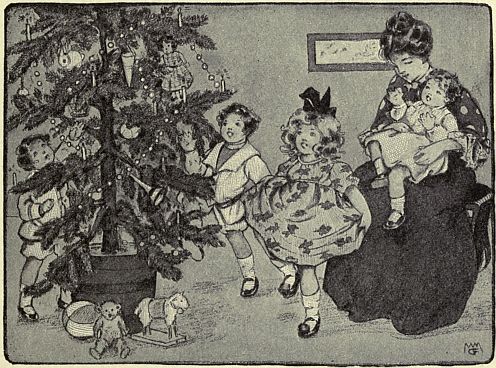

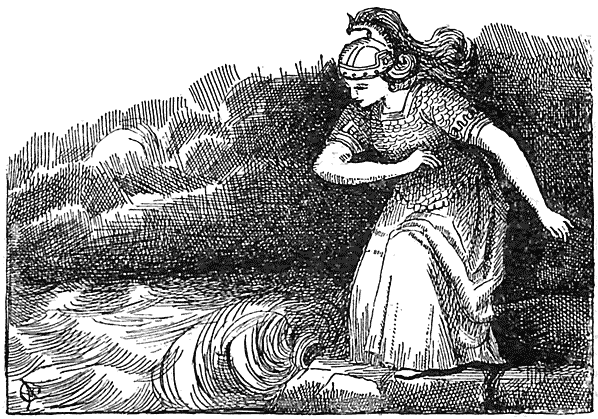
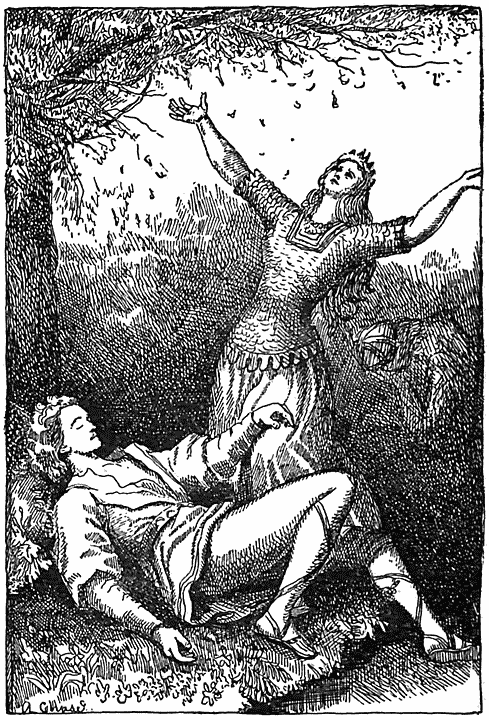
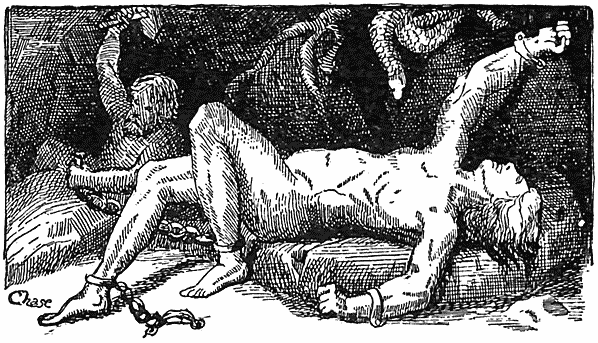

(1).jpg)












.png)

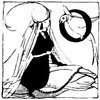
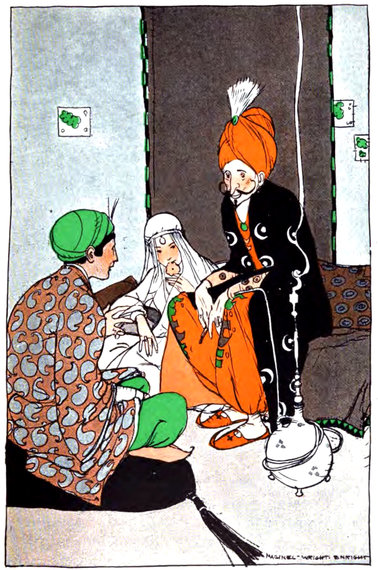

.jpg)